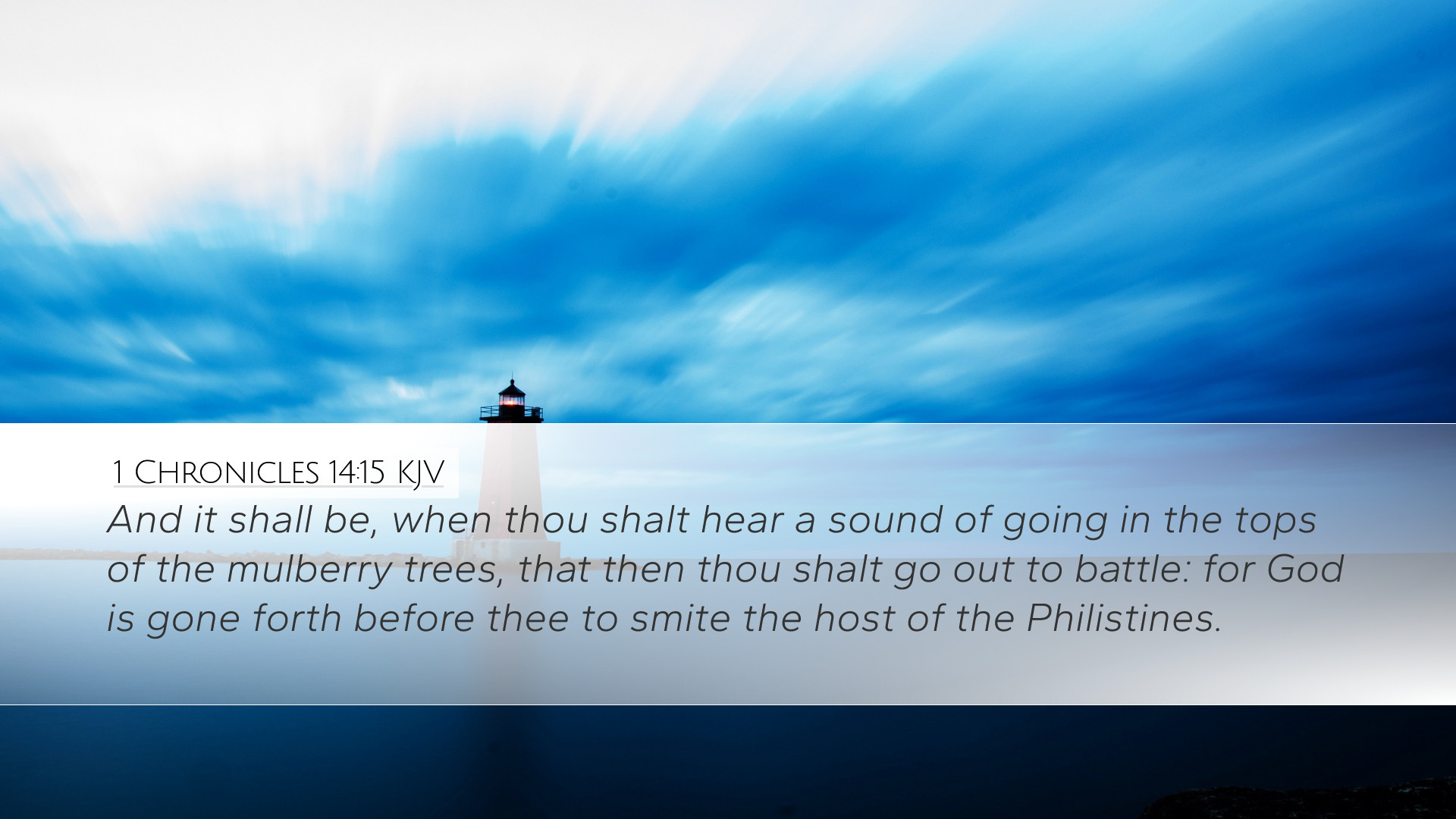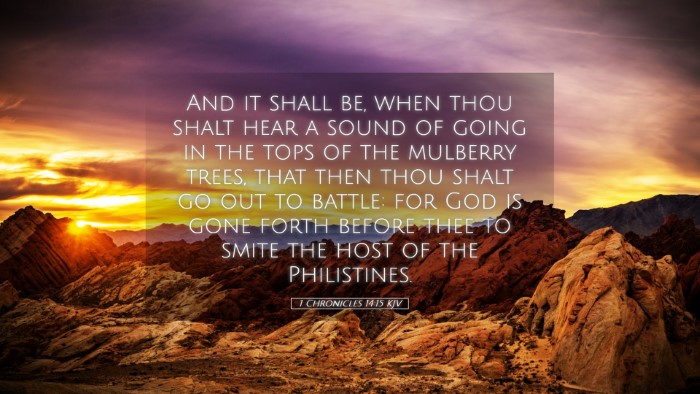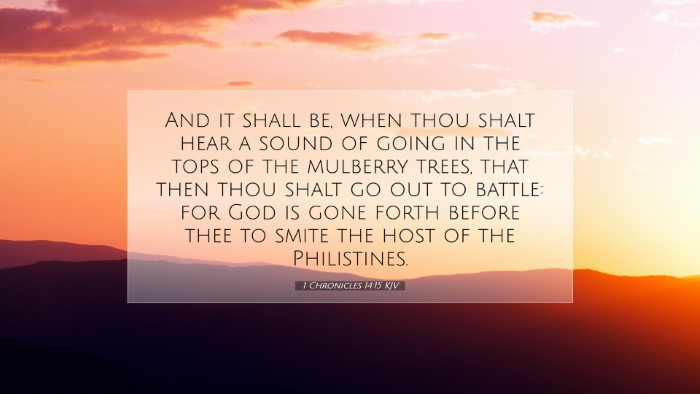Commentary on 1 Chronicles 14:15
Verse: "And it shall be, when thou shalt hear a sound of going in the tops of the mulberry trees, that then thou shalt go out to battle: for God is gone forth before thee to smite the host of the Philistines."
Introduction
The narrative of 1 Chronicles 14:15 holds significant practical and theological insights, particularly concerning divine guidance and warfare. This passage speaks to the moment when David sought God's direction in a critical confrontation with the Philistines, and it reveals the blend of human initiative and divine intervention. In analyzing this verse, we will draw from the insights of prominent public domain commentators including Matthew Henry, Adam Clarke, and Albert Barnes, providing a rich tapestry of interpretation for pastors, students, theologians, and Bible scholars.
Contextual Background
During this period, Israel faced various enemies, among whom the Philistines were notable adversaries. David, having established his kingship, mustered his forces against the Philistines who encroached upon his territory. This context brings forth the tension between human strategies in warfare and the necessity for divine assistance.
Verse Analysis
Sound of Going in the Tops of the Mulberry Trees
This phrase captures a vivid imagery that highlights God's presence and action in support of David. The "sound of going" is interpreted by commentators as a sign of God's intervention. Matthew Henry emphasizes that this "sound" signifies God's movement among His people, a divine signal that precedes the battle.
Albert Barnes elaborates, suggesting that this sound served as a metaphor for divine assistance and encouragement, often represented in biblical literature as a rustling or noise associated with angels or the Spirit of God.
Divine Strategy in Warfare
David's inquiry regarding the battle demonstrates a vital principle: seeking God’s counsel before undertaking significant actions. Adam Clarke notes that David, in recognizing the need for divine guidance, exemplified wisdom. His resultant action illustrates the necessity for spiritual preparedness alongside physical readiness.
- Prayer and Consultation: David’s approach to battle was characterized by prayer and seeking God’s direction. This model serves as an instructive example for leaders today.
- Trust in Divine Timing: The instruction to wait for the specific sound before moving indicates that timing is crucial in God's plans.
- Assurance of Victory: The phrase “for God is gone forth before thee” reassures that victory is assured when following divine commandments.
The Theological Implications
This passage raises important theological themes regarding God’s sovereignty, providence, and the interplay of divine will with human action.
- God’s Sovereignty: The idea that God leads His people into battle, assuring them of His presence, underlines His supreme authority over human affairs.
- Human Responsibility: David’s reliance on divine guidance exemplifies the balance between faith and action, highlighting that while God is sovereign, He invites His people to participate actively in His plans.
- Purpose of Trials: The Philistine encounter constituted not just a physical battle, but a spiritual trial designed to strengthen Israel’s reliance on God.
Lessons for Today’s Readers
Many contemporary readers may draw parallels between the challenges faced by David and their own life struggles. This passage can offer profound insights:
- Seek God in Challenges: Just as David sought God's counsel before engaging in battle, believers today are encouraged to seek divine guidance in their endeavors.
- Recognizing Divine Signs: The call to listen for the "sound" signifies the importance of being spiritually attuned to God's direction through various signs.
- Confidence in God’s Provision: As God assured David of His presence, Christians today can rely on the promise that God goes before them, preparing the way.
Conclusion
1 Chronicles 14:15 serves as a multi-faceted verse rich with application for God's people. It encapsulates the essence of spiritual warfare, the need for divine guidance, and the assurance of God's sovereignty in the face of opposition. As pastors, students, and scholars reflect on this passage, they are called to adopt a posture of prayer and dependence on God, taking courage from the knowledge that God goes before them in every battle they face. This divine assurance remains timeless, vital for strengthening faith and enhancing spiritual preparedness.


